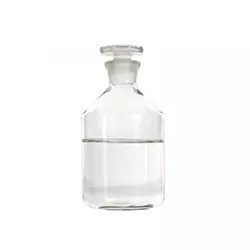IUPAC Name
Turpentine
Cas Number
8006-64-2
HS Code
38051020
Formula
C12H20O7
Appearance
Colourless Liquid
Common Names
L-Turpentine
Packaging
175 kg Galvanized Iron Drum
Turpentine also called the spirit of turpentine, oil of turpentine, wood turpentine or gum turpentine is a fluid obtained by the distillation of resin obtained from trees, mainly pine trees. It is composed of terpenes, mainly monoterpenes alpha-pinene and beta-pinene. It has a paint-like odor.
Turpentine oil is generally produced in countries with an extensive number of pine trees. Turpentines from Europe are derived from the cluster pine (P. pinaster) and the Scotch pine (P. sylvestris), whereas the turpentines from the United States are derived from the longleaf pine (P. palustris) and the slash pine (P. caribaea).
Turpentine oil is classified according to the way it is produced. Sulfate turpentine, used widely in the chemicals industry, is obtained as a by-product of the kraft when the wood pulp is cooked during the course of kraft paper manufacture. Wood turpentine is obtained by the steam distillation of shredded bits of dead pine wood, while gum turpentine results from the distillation of the exudate of the living pine tree obtained by tapping. Tapping the live pine tree would yield crude turpentine that typically contains 65% gum rosin and 18% gum turpentine.
For businesses, finding a reputable Gum Turpentine Supplier is crucial for ensuring the quality and consistency of gum turpentine oil used in various industrial applications.
Turpentine is also used as a source of raw materials in the synthesis of fragrant chemical commercial compounds such as camphor, linalool, alpha-terpineol, and geraniol. These products are usually produced from alpha-pinene and beta-pinene, two of the chief chemical components of turpentine.
Turpentine has more solvency than mineral spirits or odorless mineral spirits. Its high solvent strength makes it the best choice for thinning oils and natural resins. Turpentine is considered to be a better solvent than mineral spirits, and the best solvent for natural resins, such as dammar and mastic. It readily dissolves most of the natural varnish resins. Turpentine is a solvent for many of the alkyd resins.
While both turpentine and mineral spirits are good brush cleaners, turpentine can remove paint that has hardened slightly. Mineral spirits will only dissolve fresh oil paint. Gum turpentine or spirits of gum turpentine is recommended for artists' painting or varnish applications over other turpentine products, such as wood turpentine. Wood turpentine can be used as a solvent for oil paint, but gum turpentine is more suitable for natural varnishes.
